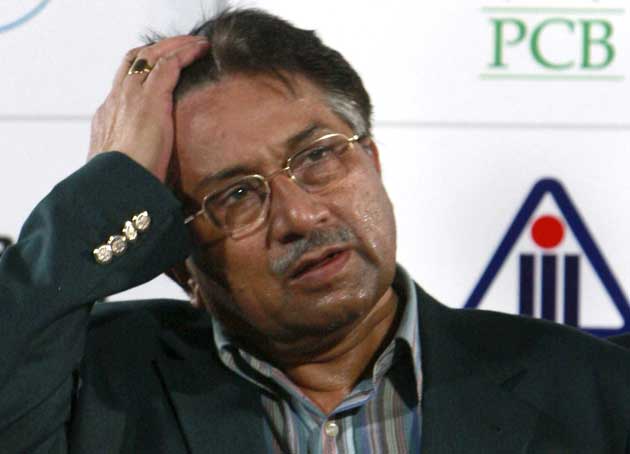Musharraf to be impeached as opponents seek to oust him
President's judicial nemesis builds case that could topple West's former favourite

Pakistan's President, Pervez Musharraf, is fighting for his political life after his opponents announced their intention to try to impeach him and bring an end to his eight years in power.
After a frenzied 48 hours in the capital, the leaders of the two largest parties – who now head a fragile coalition government – united behind the move.
The Pakistan People's Party (PPP) led by Benazir Bhutto's widower, Asif Ali Zardari, and the Pakistan Muslim League-N (PML-N) of former prime minister Nawaz Sharif also appear to have broken their months-long deadlock over the fate of the judges that Mr Musharraf sacked in November.
Sitting in his Islamabad home beneath a portrait of his slain wife, Mr Zardari hailed the decision as "good news for democracy". The coalition has decided "it will immediately initiate impeachment proceedings. The coalition leadership will present a charge sheet against General Musharraf," he said, his voice growing excitedly louder. A smile filled the face of Mr Sharif, who said: "This person committed an oppression against Pakistan."
There has been no reaction from the President – so long the champion of the West but now an isolated figure. While his erstwhile champion, President George Bush, arrived yesterday at the Olympics in Beijing, Mr Musharraf cancelled plans to join him. His political supporters, now reduced to the opposition, vowed to fight the move. "We have backed him and voted for him so we are duty bound to support him," said Tariq Azim for the pro-Musharraf Pakistan Muslim League-Q.
The impeachment process is likely to be long and painful. Mr Zardari said that a "charge sheet" will be drawn up, which is likely to include "high treason" for mounting a coup in 1999, when he overthrew Mr Sharif's government, and the imposition of state of emergency in November, when he suspended the constitution and sacked the judiciary.
The former general had said that he would rather resign than be impeached. It's an option that the coalition would prefer over an all-out confrontation, and it has allowed Mr Musharraf time to quietly step aside; proceedings are unlikely to begin until August. Before then, the legislatures of the four provinces will ask him to seek a "vote of confidence". Given his supporters' heavy defeat in February, he is unlikely to survive that event.
Indeed, the President's options are few. Since stepping out of his military uniform in November, and losing a loyal government in February, his authority has diminished. But there is one arrow he can still reach for in his fast-emptying quiver: the power to dissolve parliament. Described as "the nuclear option", it would plunge Pakistan into fresh uncertainty and may even lead to unrest in the streets. And a new election will only further empty parliament of his supporters.
Mr Musharraf may also turn to Washington and the army for help – the two sources of support that have sustained him in office over the past few months. Analysts, however, said that no such help would be forthcoming. The army may not wish to see one of its longest-serving ex-chiefs humiliated, but they are unlikely to risk intervening at a moment when it is weighed down by the challenges of Islamist militancy and is keen to rebuild its much-damaged domestic image.
"The army is totally out of politics," said Ahmed Mukhtar, the Defence Minister and senior member of the PPP. "The Americans are going to support democracy over any individual."
General Ashfaq Kayani, the new army chief, was meeting with senior military officials as the news came. A spokesman said the meeting was routine and was not related to Mr Musharraf's future. Since being elevated to the most powerful position in Pakistan, General Kayani has impressed the country's politicians by deferring to their decisions.
The White House also did not offer help, saying that "the internal politics of Pakistan is an issue for the Pakistani people".
The coalition leaders also decided to reinstate the sacked judges to the positions they held before Mr Musharraf imposed a state of emergency. Iftikhar Chaudhry, the chief justice, is likely to return to the Supreme Court. Over the past year, he has become a symbol of resistance against Mr Musharraf and many want him to return.
Join our commenting forum
Join thought-provoking conversations, follow other Independent readers and see their replies
Comments
Bookmark popover
Removed from bookmarks